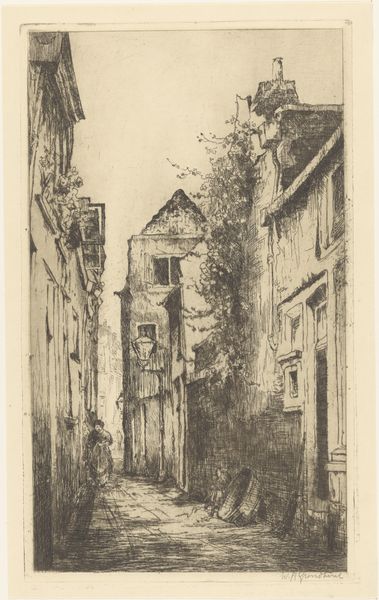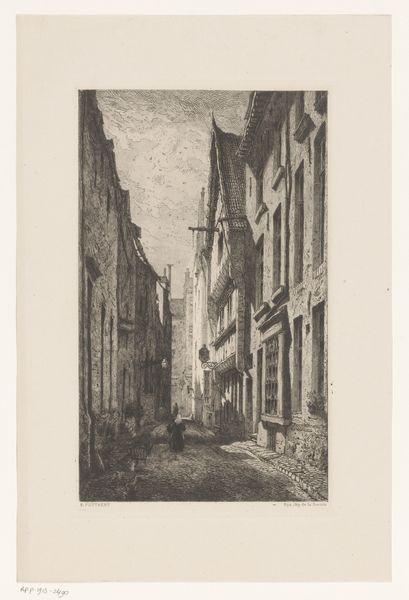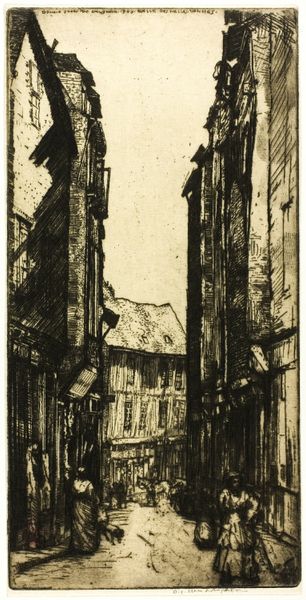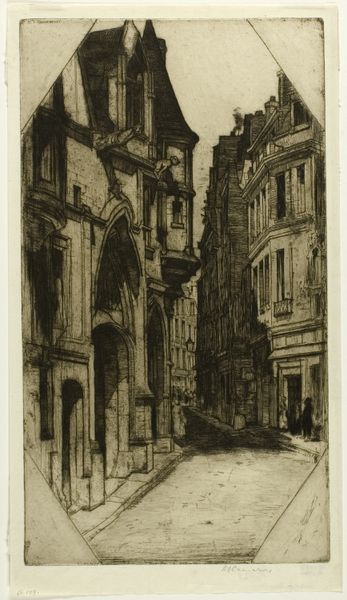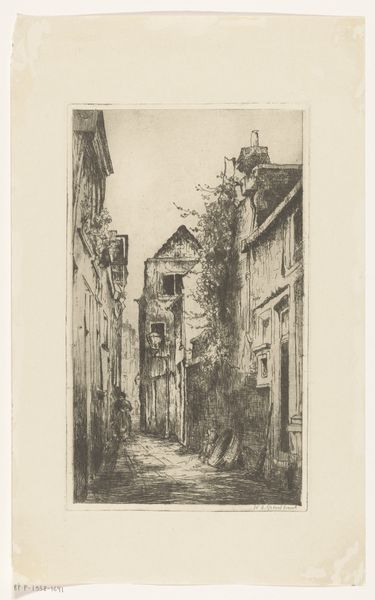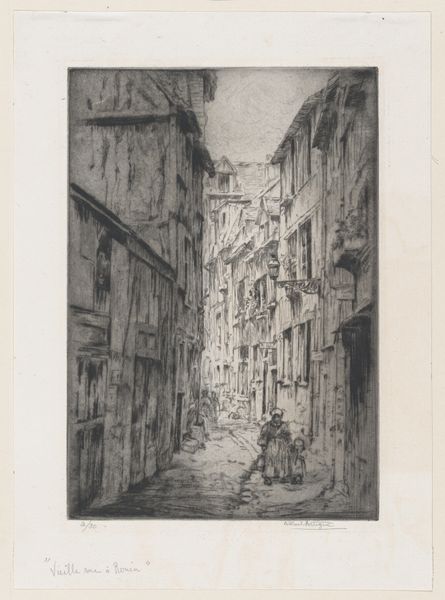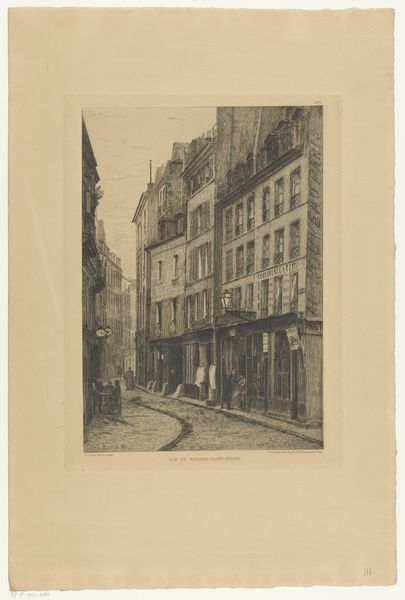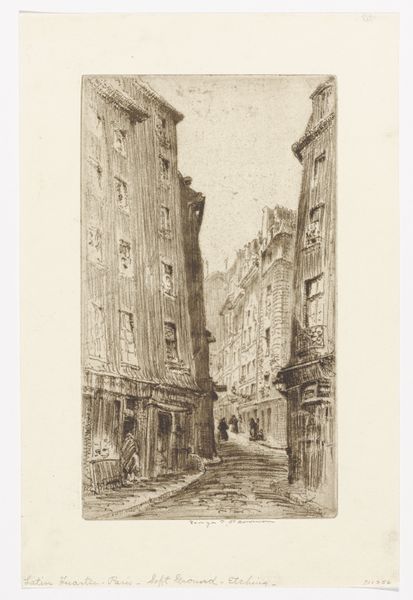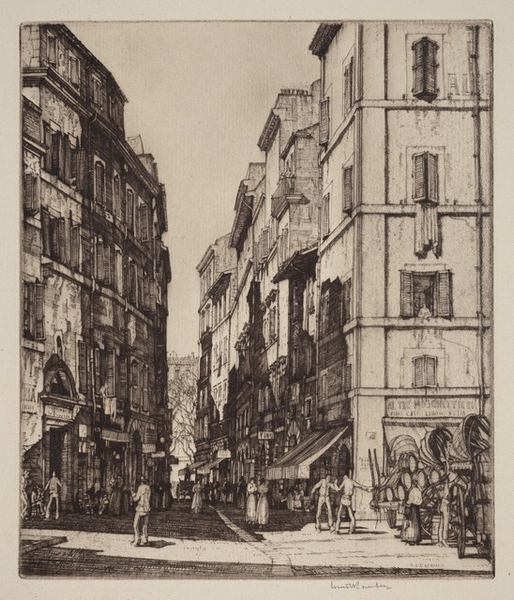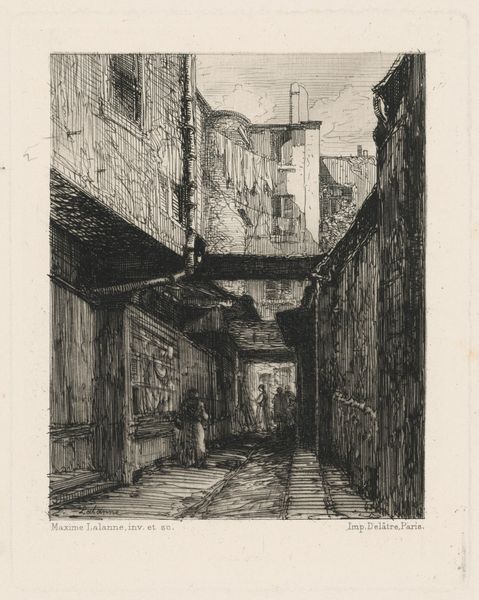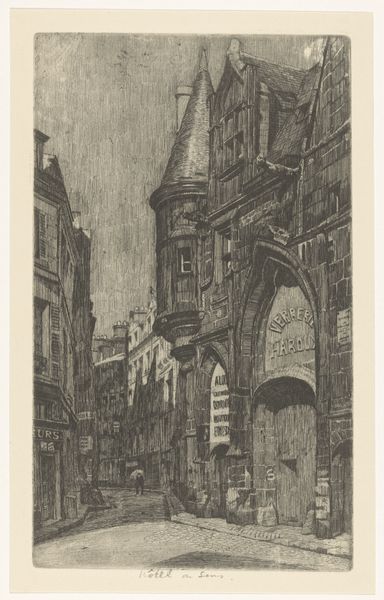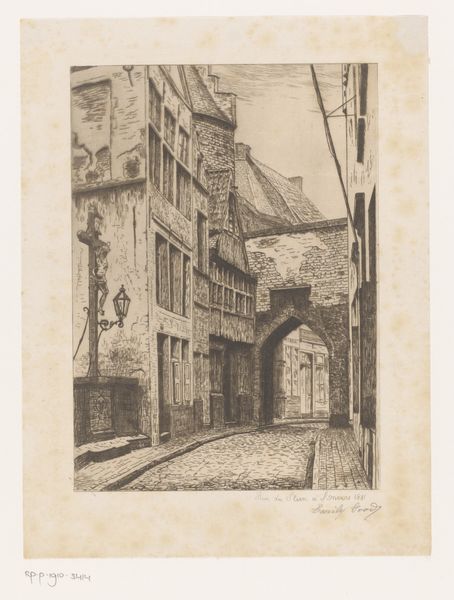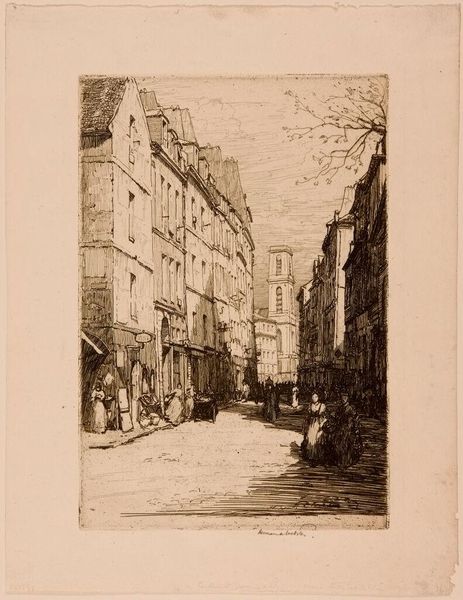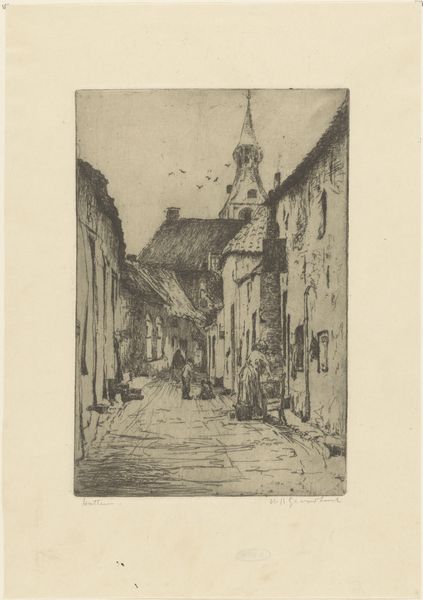
Dimensions: height 265 mm, width 220 mm
Copyright: Rijks Museum: Open Domain
Martin Monnickendam made this etching of Passage Saint-Paul in Paris. With its cobblestone streets, tall buildings, and glimpses of daily life, the print offers a window into the urban experience of early 20th-century Paris. The image creates meaning through its visual codes, referencing the historical associations of the city, which was undergoing significant transformations during this period. The rise of the bourgeoisie, industrialization, and urbanization all had an impact on Parisian social structures, and artists like Monnickendam were capturing these changes in their work. By studying the artwork's style, subject matter, and historical context, we can gain insight into the cultural values, beliefs, and power dynamics of the time. Research resources such as archival documents, period publications, and other artworks from the era can all help us to better understand it. The meaning of art is contingent on social and institutional context, and historical analysis is essential for unlocking its full potential.
Comments
No comments
Be the first to comment and join the conversation on the ultimate creative platform.
